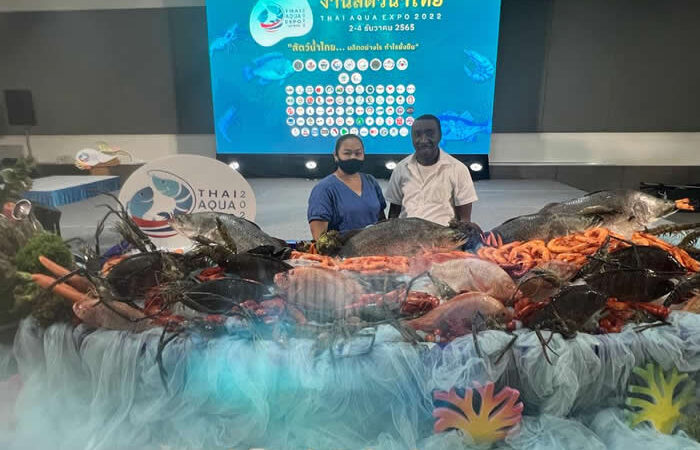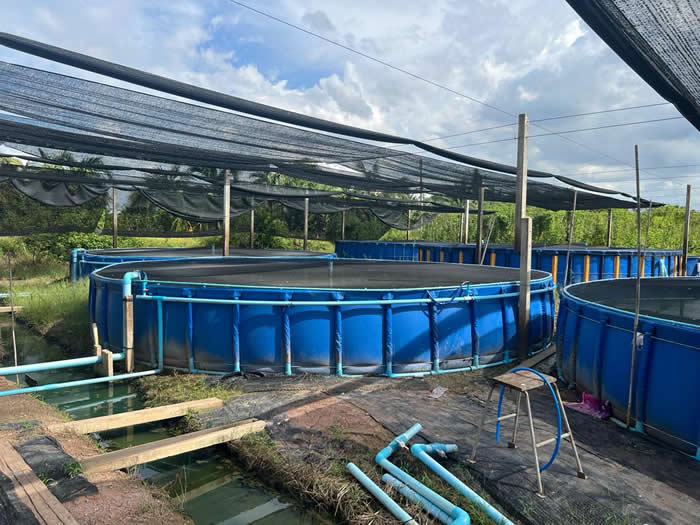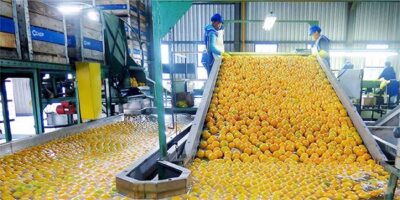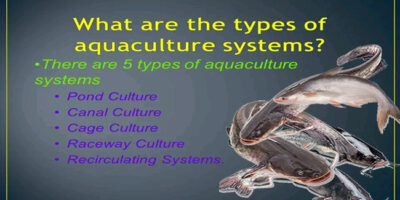Meet The Best Catfish Farmer In Nigeria In 2023: Stanislus Njoku

Stanislus Njoku is the founder of SS Farms Limited, a pioneer and trailblazer in Nigeria’s young Biofloc fish farming industry. He has become an inspiration to numerous catfish farmers in Lagos State, in particular, and Nigeria in general. Flavision caught up with him for a candid, one-on-one interview.

What Does SS Farms Do?
It’s an agribusiness that breeds and supplies various species of fishes, including catfish, tilapia and pangasius. At SS Farms, we hatch these species of fishes and supply them as fingerlings and juveniles to other farmers in Nigeria and beyond. There is an ever-growing list of wholesalers who buy dried catfish, dried tilapia and dried pangasius fish from us. We also breed black soldier flies, which we use as a highly-nutritious source of protein for producing our fish feeds. We have blast freezers, which enable us to store our fresh fish products. This value addition goes a long way, and helps us to ease storage headaches. Moreover, we train farmers on best practices, in order to increase their return on investments (ROI).
How Long Have You Been Doing Commercial Fish Farming In Nigeria?
Since June 2019, and I’ve never looked back.
How Did It Happen?
It actually didn’t happen overnight. It all started as a hobby in my father’s backyard, when I was in secondary school. I was into subsistence fish farming since 1996. But in 2017, when the Nigerian economy was passing through a recession, I started to strongly consider the possibility of me becoming a commercial fish farmer.
What’s The Size Of SS Farms And Which Species Of Fishes Do You Breed?
We breed and supply catfish, tilapia and pangasius on three (3) acres of land in Ijagemo, Ojo LGA of Lagos State, Nigeria. The land is a natural habitat of fishes.
We deploy Biofloc method of fish farming, which means rearing a large number of fishes within small ponds, than would have been impossible with tradional methods. We produce about 500 tonnes of fishes per year, depending on demand.

What Sort Of Production System Do You Operate?
We have both earthen and tarpaulin ponds.
Why Did You Choose Aquaculture A Career Path?
Because of my deep passion for fish farming and the zeal to contribute to the food production industry in Nigeria. I strongly believe that fish protein is one of the healthiest proteins recommended for human consumption.
What’s Your Ultimate Ambition As A Fish Farmer In Nigeria?
Fish feed production prices in Nigeria are skyrocketing, putting pressure on farm margins. The business terrain is rough these days, because of the ever-increasing operating cost. We produce our own fish feeds, but we buy maize, wheat bran, and fish meal from suppliers, who increase their prices almost every month. Yet, farmers cannot afford to be increasing the prices of their fishes by the same amount, because the price is usually dictated by local market women.
SS Farms projects to ameliorate the problem, by progressing towards cultivating maize, wheat, and cassava, and preserving the fins and bowels of the fishes we remove before drying. Using these in future feed production would definitely lower our operating cost. This would in turn enable us to sell our fishes at cheaper prices to suppliers.
What’s Your Top Challenge As A Fish Farmer In Nigeria?
My biggest challenge is maintaining the 24-hour energy supply that is needed in Biofloc farming to power the ring blowers on the farm. The operating cost of providing power adversely affects the cost of the products, and we at SS Farms, are fighting to put in place a lasting solution to the issue.
What’s Your Greatest Achievement To Date?
I believe that my greatest achievement so far is the successful drive to lower the cost of catfish, tilapia and pangasius fishes in Lagos, in particular, and Nigeria in general. Within the last five years, I’ve helped and keep helping our students on the practical aspects of aquaculture. I’m proud to be paving brighter future for our youths.
Training students in aquaculture is my passion and I believe that attracting Nigerian youths to fish farming business will definitely help to improve the country’s economy in the nearest future. We perform better than “paper farmers” in fish farming training, because our fish farming trainers are seasoned professionals, who impart 100% result-oriented, practical skill sets in our students.
In most cases, we train people, who have zero knowledge of fish farming and guide them to become experts in the industry. Stanislus Njoku advises his students that anyone with passion can be a successful fish farmer
Farming is one of the few professions in the world that absorb many other professions, such as veterinarians, teachers and engineers. The good news is that you don’t need to have a certificate or a university degree to become a successful fish farmer. And you can venture into the fish farming business with little knowledge and capital, learn as you go and still make it big.
Which Farm Equipment Would You Like To To Add To Your Farm?
I would definitely like to add a biogas generator, as another layer of backup for our solar power system and diesel generator. That would help to reduce to the barest minimum power outages on the farm. Fuel and diesel prices have gone up, since President Tinubu Ahmed was inaugurated. So, continuing to depend on fuel or diesel is no longer a viable option.

Justin Nwosu is the founder and publisher of Flavision. His core interest is in writing unbiased news about Nigeria in particular and Africa in general. He’s a strong adherent of investigative journalism, with a bent on exposing corruption, abuse of power and societal ills.













